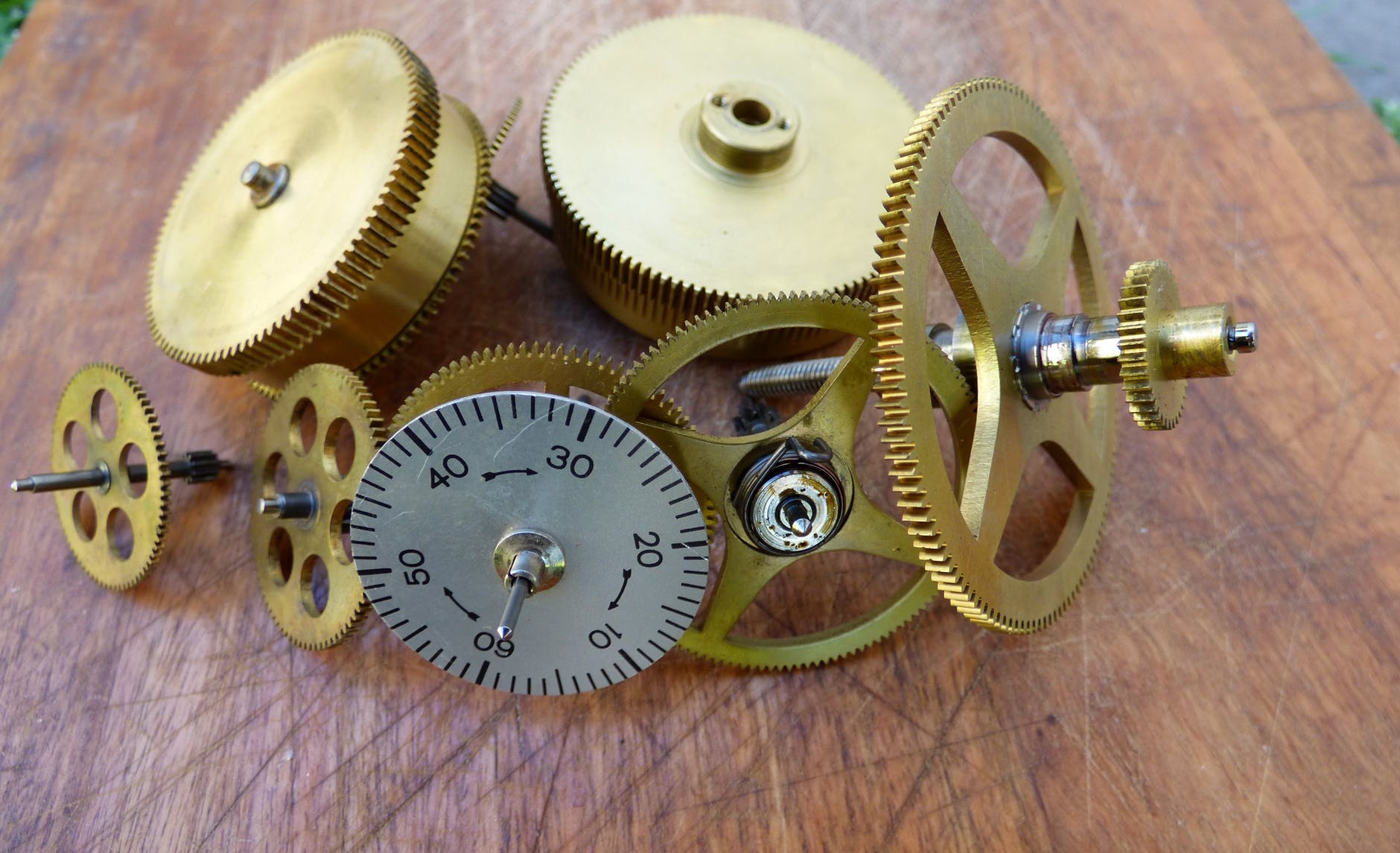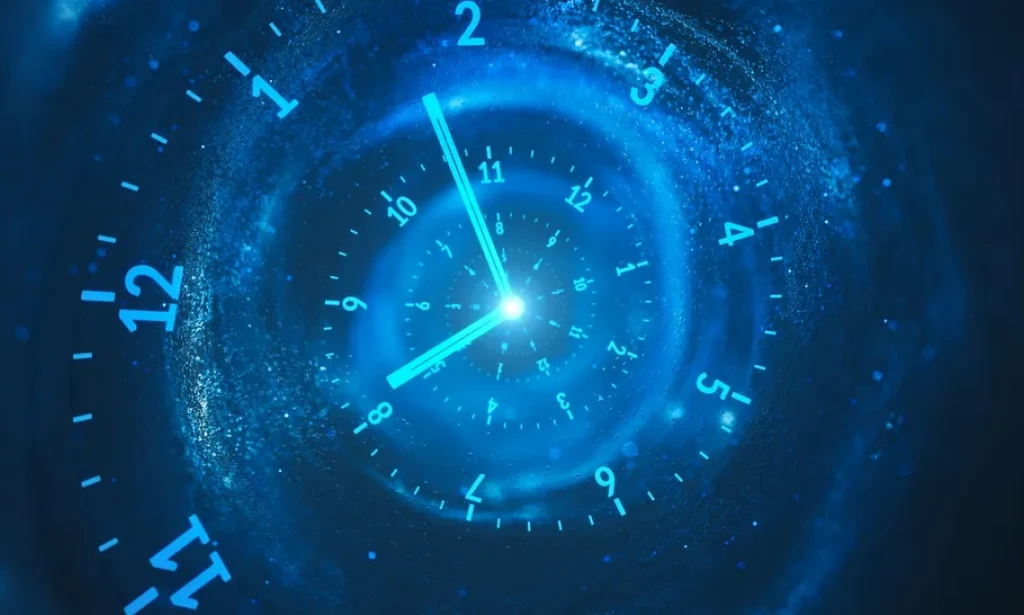🕰️ Theories Behind Time Machines
Several scientific theories attempt to explore the feasibility of time travel. While these are primarily theoretical and not yet proven, they provide insight into how time machines might, hypothetically, work.
1. General Relativity and Time Travel
Albert Einstein's theory of General Relativity suggests that time is not absolute; it can be stretched or compressed depending on gravity and velocity. This leads to fascinating ideas about time machines.
- Wormholes: These are hypothetical tunnels through spacetime that could connect two points in time and space. Wormholes could act as shortcuts between two locations, allowing time travel.
- Closed Timeline Curves (CTCs): These are paths in spacetime that could loop back on themselves, theoretically allowing an object to return to its own past. The concept is grounded in the geometry of spacetime but remains speculative.
2. Quantum Physics and Time Machines
Quantum entanglement and other phenomena suggest that time behaves in ways we still don't fully understand. Some scientists speculate that quantum theories could one day enable time manipulation, although the practical application remains far from current technological capability.
3. Cosmic Strings
Cosmic strings are hypothetical, ultra-thin, high-density threads of energy that could warp spacetime. Theoretically, they could create conditions conducive to time travel by altering the fabric of spacetime.
🔮 Time Machines in Popular Culture
The idea of time machines has been a popular subject in literature, movies, and other media. These representations often mix scientific concepts with creative storytelling.
📚 Literary Time Machines
- H.G. Wells’ The Time Machine (1895): One of the first famous references to a "time machine" in science fiction literature. Wells’ time machine allows the protagonist to travel forward into the distant future and backward into the distant past, exploring human evolution and social commentary on technology and progress.
🎥 Movies & TV Shows
- The Back to the Future series: Featuring the iconic DeLorean time machine, this series popularized the concept of time travel for fun and adventure, with paradoxes and historical changes as central themes.
- Doctor Who: The TARDIS is a time-traveling spaceship that allows the Doctor to visit any time or place in history. Doctor Who cleverly explores time loops, alternate timelines, and the ethical considerations of time travel.
- The Time Machine (1960): Adapted from H.G. Wells’ novel, this movie portrayed a Victorian scientist building a machine capable of taking him far into the future.
🔍 Philosophical Implications of Time Travel
Beyond physics, time machines and time travel raise philosophical and ethical questions:
-
The Grandfather Paradox: If you could travel to the past and change events (e.g., preventing your grandfather from meeting your grandmother), it could lead to logical inconsistencies. Would you erase your own existence? This paradox explores causality and how actions might influence timelines.
-
Determinism vs. Free Will: If time machines exist, would the future be predestined, or could choices change history? Philosophers debate whether time travel would eliminate the concept of free will.
-
Ethical Concerns: Imagine being able to go back in time to prevent tragedies or historical atrocities. Would be tampering with the past lead to unintended consequences?

🚀 Practical Challenges in Creating a Time Machine
Even if time travel is theoretically possible, creating a working machine presents immense technological and conceptual hurdles:
-
Energy Requirements: Manipulating time (via wormholes, time loops, or spacetime warping) would likely require enormous amounts of energy—far beyond our current technological capabilities.
-
Stability of Wormholes or Spacetime Warping: Hypothetical time machines would rely on incredibly unstable cosmic structures. Keeping a wormhole stable for use would require exotic matter with negative energy.
-
Paradoxes: Any working time machine would almost certainly risk creating paradoxes, like the Grandfather Paradox, where changes in the past could prevent the machine's very construction.
-
Quantum Constraints: If quantum mechanics were involved in time manipulation, researchers would first have to solve significant quantum mechanics puzzles and better understand time's relationship with quantum processes.

🛠️ Modern Experiments and Theoretical Work
While building a time machine is still firmly in the realm of science fiction, modern physics has been exploring similar concepts:
-
Black Holes & Time Dilation: Experiments such as observing the effects of time dilation around massive celestial bodies like black holes can give clues about how time behaves under extreme gravitational forces.
-
Time Dilation with High-Speed Travel: The faster an object travels, the slower time moves for it relative to a stationary observer. This effect has been confirmed by GPS satellites and experiments with atomic clocks.
-
Gravitational Time Manipulations: Physicists continue to study how massive gravitational fields might warp time, potentially offering insights into future ways to "manipulate" time.

🔮 The Mystery of the Unknown
Despite our theoretical understanding of time travel, the actual mysteries of time—and whether time machines could ever exist—remain unresolved. Could future civilizations find ways to exploit the very fabric of spacetime? Could we one day observe these wormholes, cosmic strings, or other mysterious constructs proposed by physics?
While science has yet to provide definitive answers, time machines continue to inspire curiosity, creativity, and imagination—both in their scientific implications and their narrative power as tools of storytelling.



You must be logged in to post a comment.